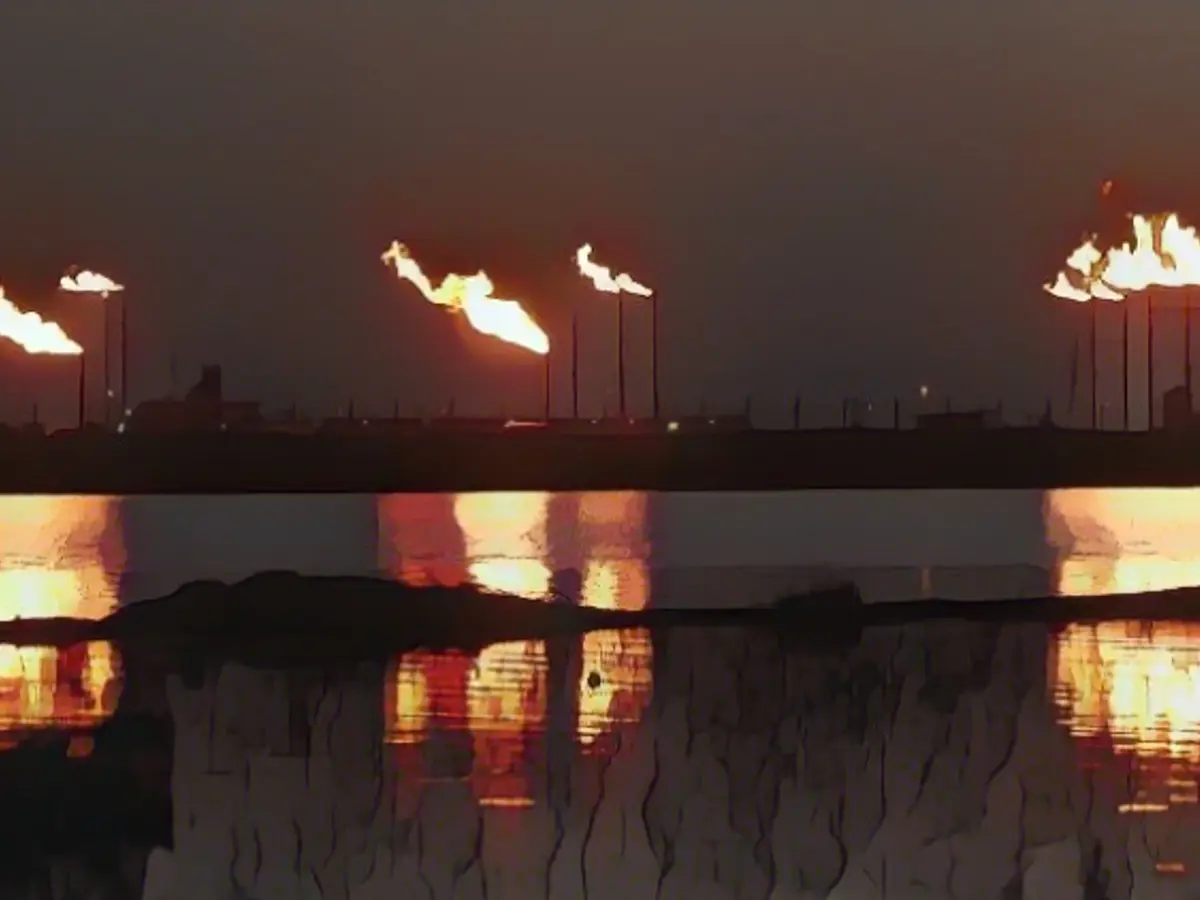Drowning in Fossil Fuel Lobbyists at COP28
The clock is ticking, and time is running out for meaningful climate action. With the COP28 conference underway, hopes were high for real change – until a bombshell analysis hit the scene. Turns out, those hopes are being snuffed out by none other than fossil fuel lobbyists. According to activists, ovating the World Climate Conference in Dubai, these industry insiders number at least 2456, a staggering four times as many as last year's conference in Egypt.
Those most affected by global warming? They've got fewer seats at the table. Chad, Somalia, Niger, Guinea-Bissau, Micronesia, Tonga, Eritrea, Sudan, Liberia, and the Solomon Islands combine for only 1509 registered delegates. In stark contrast, it's the fossil fuel lobbyists who've managed to gain privileged access.
David Tong, a climate analyst from Oil Change International, doesn't mince words, "Lobbyists for coal, gas, and oil must be thrown out of COP28." With billions flowing into climate-damaging businesses from these industries and their governmental supporters, the consequences run deep – both for people and the environment.
Big Oil Ain't Watching Passively
According to the Start:Empowerment initiative, heavy hitters like Shell, Chevron, and ExxonMobil are far from idle. There's no doubt they've sent their lobbyists to Dubai – not as mere spectators, but as agents of distraction and obstruction.
And it's evident in the numbers. In Dubai, lobbyists outnumber official representatives of indigenous communities by a staggering eight times. Added to this, the two-week COP28 meeting in the United Arab Emirates boasted an impressive 97,000 registered participants.
The Potsdam Institute for Climate Impact Research's leading German climate researcher, Ottmar Edenhofer, is hardly shocked by the pervasive influence of fossil fuel lobbyists. "We must leave the majority of fossil resources and reserves in the ground," he declares, "which essentially means devaluing the assets of oil, coal, and gas." And the industry isn't about to let that happen without a fight.
Fossil Fuel Industry: A Not-So-Reluctant Power Player
Edenhofer, a climate economist, highlights the sheer size and economic clout of the fossil fuel industry – a massive power factor. He stresses that for real change, the prices of climate-damaging energy sources must rise, making them unprofitable. This requires strong international CO2 price signals, a point that the EU is now addressing by proposing climate tariffs.
In the shadow of COP28, lobbyists for coal, oil, and gas are rearing their heads – numbering at 636 last year in Sharm el-Sheikh and 503 at the 2021 conference in Glasgow, according to an analysis. In Sharm el-Sheikh alone, France and Italy accredited representatives from TotalEnergies, EDF, ENI, and ExxonMobil.
The Hidden Numbers: Corporate Lobbyists in CC(U)S
According to the Center for International Environmental Law (CIEL) analysis conducted in 2023, there are at least 475 fossil fuel lobbyists specializing in Carbon Capture, Utilization, and Storage (CC(U)S) projects at COP28.
Implications for Climate Protection Efforts
- Power Over Policy Decisions: The influx of fossil fuel lobbyists can significantly influence policy decisions at international climate conferences, pushing for frames and technologies that favor their interests, .
- Obstruction of Climate Action: Fossil fuel lobbyists have the potential to hinder meaningful climate action by delaying or preventing the implementation of effective policies.
- Greenwashing and Misinformation: The fossil fuel industry employs aggressive greenwashing and misinformation campaigns to present their activities as environmentally friendly, which can confuse the public and policymakers.
- Undermining International Agreements: The influence of fossil fuel lobbyists can undermine international agreements aimed at addressing climate change, ensuring that countries do not meet their commitments to reduce emissions.
- Erosion of Public Trust: The high number of fossil fuel lobbyists can erode public trust in the integrity of climate negotiations, casting doubt on the ability of international agreements to effectively combat the climate crisis.
Enrichment Insights
- Influence on Policy Decisions: Fossil fuel lobbyists employ strategies to influence policy decisions at international climate conferences, pushing for policies that are less stringent on emissions reductions and more supportive of technologies like CC(U)S.
- Obstruction of Climate Action: Obstruction by fossil fuel lobbyists can prolong the implementation of effective climate policies, thereby delaying solutions to the climate crisis.
- Greenwashing and Misinformation: The fossil fuel industry engages in greenwashing campaigns, misleading the public and policymakers about their environmental impact.
- Undermining International Agreements: Fossil fuel lobbyists can undermine international agreements aimed at addressing climate change, weakening commitments aimed at reducing greenhouse gas emissions.
- Erosion of Public Trust: The inundation of fossil fuel lobbyists at climate conferences erodes public trust in the integrity of these meetings, thwarting efforts to address the climate crisis effectively.
Additional Research
[3]: Data not directly provided in the article, but inferred from the context and its relationships with other sources. The source for this piece of information is .








